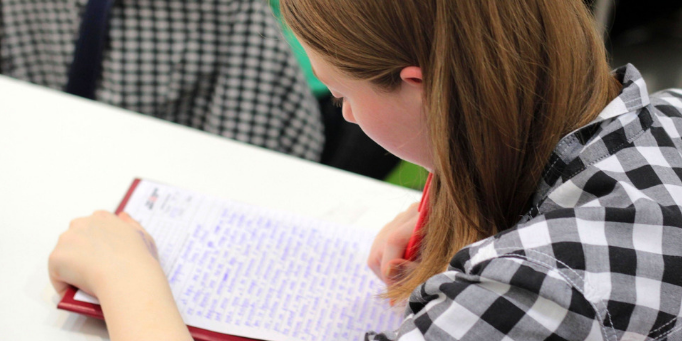
A sense of calm—helping your child through the last month of school
How do parents care for their young person during the final months of exams and finishing high school?
With mixed feelings, our school community farewelled the latest Year 12 cohort in the last weeks. What an emotional journey! For the last twelve months (or thirteen years for some!) we (the school community) have mentored and taught them what we think will get them over the line.
There have been many conversations about how to study, what to study, how much study is useful and how to do well in the upcoming exams. We have prayed with them, listened to them and guided them through each assessment and piece of major work.
Conversations about faith, self-care, sleep, eating habits, exercise and life after the HSC (Higher School Certificate) have hopefully ensured that they understand their value in Christ is bigger than the number of the mark they achieve in exams.
But we (staff in schools) are not their parents. We don’t have the same emotional connection that families do with their HSC teen, and we are often not around when the journey gets bumpy. So how do parents care for their young person during the next month?
While I could answer this question from my perspective as a psychologist, I was keen to hear from parents who had travelled this road before. The answers I received were as varied as young people themselves! But all of them were useful. Just as one style of parenting doesn’t fit each child, managing the HSC is different for each household, and for each child.
So what did ‘expert’ parents have to say?
‘When they come home from school, they need downtime as they have just been at school around people all day so they need to unwind and chill. Establish a routine and stick to it … Don’t forget that they are all different and all have their strengths and weaknesses.’
- Sonia
‘Keep some normal, routine things happening, like dinner together at the table where possible, church, youth group, sport or other family times.’
- Andrew
‘Parents need to be aware that this is their child’s HSC, not theirs. Parents need to ask their kids what they need from them, not assume or tell them.’
- Kim
‘I had to learn to listen and not talk. Also understand when I was needed and not—there are times that I had to back off and just let her be.’
- Rae
‘Reassure your child that they are trusted to do their best; they are loved and supported whatever the exam results.’
- Heather
‘One size doesn’t fit all. Supporting our kids through that time was about checking in with them (while trying not to appear like we were ‘checking up’) and trying to support them where they were at.’
- Karen
‘Make sure the student has fun things to look forward to fairly regularly, both with their friends and family.’
- Shelley
‘We never ever wanted them to worry over an exam that is basically revision of what they should already know anyway. If they did overthink then they were encouraged to step away from the desk for a while. I have always maintained that their marks were only part of their achievements and they were always encouraged to have a Plan B to fall back on.’
- Leanne
‘Don’t stress! Whatever happens–good or bad—God has their life and he will guide them.’
- Susan
Parents also talked about insisting on regular exercise or fresh air, making healthy snacks, encouraging regular breaks, doing an unrelated activity such as craft, reducing household expectations, and reducing access to social media or gaming.
There were so many good snippets of advice like these ones, but overall, the theme seemed to be one of parents providing a sense of calm, like the comforting sound of a regular heartbeat in a noisy room. Sounds easy right?!
My one piece of advice for parents then, is that if you are going to try to be the ‘sense of calm’, then you also need to care for yourself. Just like the flight attendant telling adults to put on their oxygen masks before helping their children with theirs, you need to find out what is missing in your self-care tank, before you care for your child and help them through these exams. Modelling this balanced life in high times of stress will be the best gift parents can give their young person—after all they have been watching you for eighteen years!
Alyson is a psychologist who has been working with children and families for nearly 20 years. As a mum of 3 boys she is passionate about families and health professionals working together to improve health and wellbeing. She loves her church family in Dapto and see it a privilege to walk alongside young people in her current role at Illawarra Christian School. Her hope is that one day there will be little stigma around mental health and that people will experience love not judgement in times when they need it the most.
(Many thanks to the parents I spoke to who willingly offered advice.)
For more articles from Growing Faith, subscribe to our monthly e-newsletter.
To hear about the latest books and resources from Youthworks Media, subscribe here.






